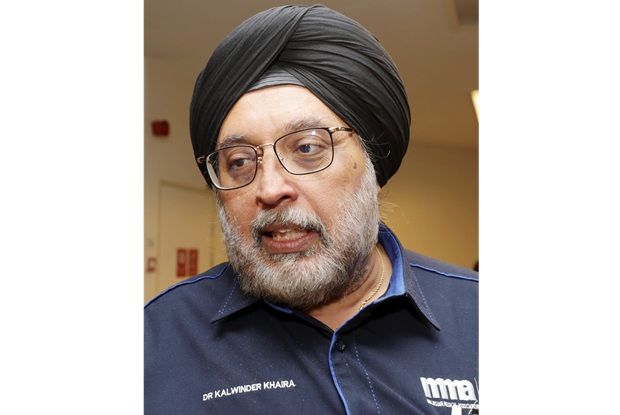PETALING JAYA: The Malaysian Medical Association (MMA) has voiced strong concern to the Poisons (Amendment) Bill 2025, urging the government to halt its progress in Parliament until proper engagement is conducted with stakeholders in the healthcare sector.
Its president Datuk Dr Kalwinder Singh Khaira (pic) said the association, along with other medical professional bodies, was deeply concerned that the Bill was tabled without prior consultation with key stakeholders, including the MMA itself.
“We acknowledge the government’s intention to strengthen enforcement, possibly in response to serious cross-border threats such as drug smuggling or maritime trafficking.
“However, if this is indeed the rationale, it must be clearly stated and the scope of the amendments appropriately defined in the legislation,” he said in a statement on Friday (July 25) night.
Dr Kalwinder said the language of the Bill was overly broad and raised red flags regarding enforcement powers and the implications for private healthcare services.
He pointed specifically to Clause 2, which designates all police officers as authorised officers under the Act, and the proposed Section 31A, which grants the Health Minister power to appoint “any person” without specifying qualifications.
“These provisions raise serious concerns about unchecked enforcement authority and the potential disruption to legitimate private healthcare services, such as GP clinics, mobile services and charity-based health initiatives,” he said.
He added that the MMA also took issue with the expanded definition of “premises” in the Bill, saying it could group licensed medical facilities together with non-healthcare-related or even criminal operations under the same enforcement scope.
“This risks not only operational disruption, but also potential violations of patient confidentiality and public trust,” Dr Kalwinder said.
He added that the absence of engagement with the medical fraternity represented a major procedural lapse, especially since the proposed changes would significantly impact the daily operations of thousands of healthcare practitioners nationwide.
“These are not peripheral changes,” he said, adding that the Health Ministry and MPs delay any further readings of the Bill until a comprehensive consultation is held with the medical profession.
Dr Kalwinder said the Act must make a clear distinction between enforcement aimed at criminal activity and regulation of clinical practice.
He noted that private healthcare providers are already regulated under the Private Healthcare Facilities and Services Act 1998 (Act 586), with oversight from the Health Ministry.
“This arrangement should remain as it is,” he said, warning against overlapping or excessive enforcement that could disrupt healthcare delivery.
Dr Kalwinder reiterated that the MMA stands ready to engage in constructive dialogue to ensure public safety is upheld without compromising the integrity and autonomy of the medical profession.

